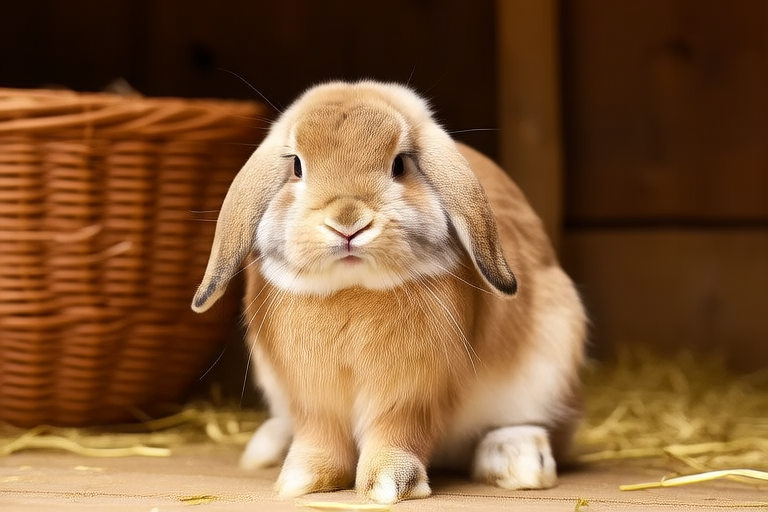From Fluffy Ears to Gentle Hearts: All You Need to Know About Lop Rabbits
Lop rabbits are among the most recognizable breeds due to their signature long, floppy ears that droop down gracefully. These endearing animals have captured the hearts of many with their charming appearance and amiable personalities. Whether you’re a seasoned rabbit owner or thinking about adopting your first furry friend, this guide will provide you with all the essential information about lop rabbits.
Introduction to Lop Rabbits
The lop rabbit is a domesticated breed known for its distinctively long, drooping ears. These rabbits come in various sizes, from the tiny Miniature Lop to the larger Giant Lop. Their ears, which can measure up to 7 inches in length, are one of their most defining features, giving them a uniquely adorable look. Despite their delicate appearance, lop rabbits are robust and well-suited for life as pets.
Different Breeds of Lop Rabbits
There are several types of lop rabbits, each with its own set of characteristics. The most popular include:
- English Lops: Known for having the longest ears among lop breeds, these rabbits can grow to be quite large. They are usually white but may also come in other colors such as black, blue, fawn, and broken patterns.
- French Lops: Larger than English Lops, French Lops are sturdy and muscular. They come in a variety of colors, including brown, black, and blue.
- Miniature Lops: Smaller and more compact than their larger counterparts, Miniature Lops are perfect for those with limited space. They typically weigh around 3-4 pounds and are available in a range of colors.
- Jersey Woolies: This breed is unique for its woolly coat, which requires regular grooming. Jersey Woolies come in various colors and patterns and are known for their gentle dispositions.
Temperament: Gentle and Affectionate
Lop rabbits are renowned for their calm and affectionate nature, making them ideal companions. They enjoy human interaction and can form strong bonds with their owners. Lop rabbits are generally patient and tolerant, which makes them great pets for families with children. However, it’s important to handle them gently, as their floppy ears can be sensitive.
Care Tips for Lop Rabbits
Diet
A healthy diet is crucial for maintaining your lop rabbit’s well-being. Their primary food source should be high-quality hay, which aids in digestion and dental health. Pellets should be provided in moderation, and fresh vegetables can be offered as occasional treats. Always ensure clean, fresh water is available at all times.
Housing
Proper housing is vital for keeping your lop rabbit comfortable and safe. A spacious hutch or indoor cage should be provided, allowing enough room for the rabbit to move around freely. The enclosure should be secure, with protection against predators and extreme weather conditions. Indoor rabbits benefit from a designated area within the home where they can explore and play.
Grooming
Lop rabbits require regular grooming to keep their coats healthy and free from mats. Brushing their fur weekly helps remove loose hair and prevents tangles. Pay special attention to their ears, checking for any signs of infection or irritation. Regular nail trimming is also necessary to avoid overgrowth, which can cause discomfort.
Exercise
Like all rabbits, lop rabbits need ample opportunities for exercise to maintain good physical and mental health. Providing toys and tunnels encourages exploration and activity. Daily supervised playtime outside the enclosure allows them to stretch their legs and engage in natural behaviors.
Common Health Issues and Prevention
While lop rabbits are generally hardy, they can face certain health challenges. Dental problems are common due to improper diet or genetics. Regular check-ups with a veterinarian can help catch issues early. Obesity can also be a concern if the rabbit’s diet isn’t carefully managed. Preventive measures include providing a balanced diet and ensuring sufficient exercise.
Selecting the Right Lop Rabbit
Choosing the right lop rabbit involves considering several factors:
- Living Space: Assess whether you have adequate space for the size of the lop rabbit you’re interested in. Larger breeds require more room.
- Time Commitment: Rabbits need daily care, including feeding, cleaning, and social interaction. Be prepared for the ongoing responsibilities.
- Family Dynamics: Consider the compatibility of a lop rabbit with other pets and family members. Ensure everyone is committed to providing a loving environment.
In conclusion, lop rabbits offer a delightful blend of charm and companionship. With proper care and attention, they can thrive as cherished members of your household. By understanding their specific needs and dedicating yourself to their well-being, you can ensure a happy and healthy life for your fluffy-eared friend.
